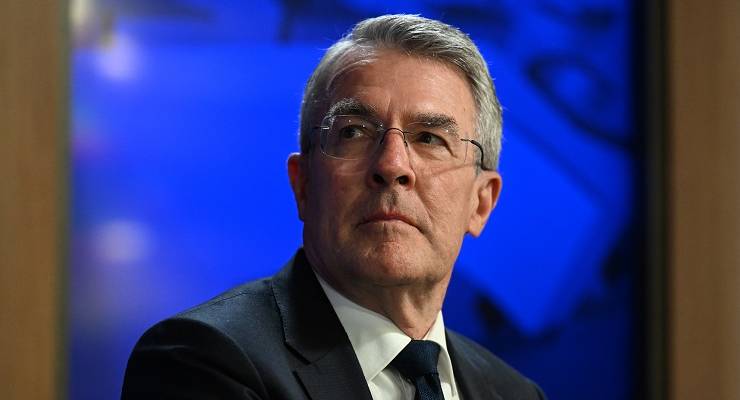
The funding deadlock which led to a UN group being blocked from visiting Australian prisons will continue, with this week’s federal budget offering no resolution for the ongoing dispute with the country’s largest jurisdictions.
The budget provided no extra funding for the implementation of the Optional Protocol to the Convention Against Torture (OPCAT) — designed to prevent torture in places of detention — despite Australia having less than three months to have its commitments in place.
Australia OPCAT Network coordinator Steven Caruana said the budget was a “missed opportunity” to resolve a five-year-long impasse on funding between the Commonwealth, states and territories.
“Rather than using this opportunity to break free of the ‘standoff’ that the former government held with states and territories, the Labor government has instead perpetuated it,” Caruana told Crikey.
The United Nations Subcommittee on Prevention of Torture (SPT) suspended its visit to Australia this week, saying it had been “compromised” after the New South Wales and Queensland governments blocked access to several places of detention.
Under OPCAT, which Australia ratified in 2017, nations must allow the SPT to have unfettered access to these places of detention and to talk directly to the people being held there.
Signatory nations must also establish independent inspection bodies, known as National Preventive Mechanisms (NPMs), for places of detention. In Australia, these NPMs will be designated by the state and territory governments.
But there has been an ongoing funding dispute regarding their implementation, with the states arguing that the Commonwealth should be supporting their introduction since it was the federal government that ratified OPCAT.
NSW, Victoria and Queensland have said they will not have their NPMs established by the January 2023 deadline unless this funding is guaranteed on an ongoing basis.
This dispute came to a head in the last week, with the NSW government preventing the UN group from accessing several prisons in the state, and the Queensland government blocking it from going into some mental health units due to privacy laws, despite these sites being covered by the OPCAT remit.
This led the SPT to take the “drastic measure” of suspending its visit to Australia, something that has only happened on three other occasions.
It had been hoped that the Labor government’s first budget on Tuesday would go some way to resolving this funding deadlock and get the ball rolling on Australia meeting its looming OPCAT deadline.
But the budget revealed that the Commonwealth’s one-off $100,000 funding package for the ACT, announced by the previous Coalition government last year, is still the only funding agreement entered into so far.
The budget papers did reveal that the federal government plans to provide funding to each jurisdiction to implement the OPCAT, but this amount is yet to be agreed upon.
Commenting on the suspended SPT visit, Attorney-General Mark Dreyfus said the Australian government’s “commitment to human rights endures”, and that it is “vital that places of detention in Australia maintain the rights of those who are held within their walls”.
Human Rights Law Centre managing lawyer Monique Hurley said the funding required should be diverted from the budget for offshore detention centres and the money the states spend on prisons.
“This is an appalling failure on the part of governments across Australia, compounded now by the Albanese government failing to step up to the plate and jointly fund implementation of the UN’s anti-torture protocol with the states and territories this budget,” Hurley said.
“Money is not the real barrier to implementation of Australia’s human rights commitments. State governments are pouring millions of dollars into running and expanding prisons, and the Albanese government has just committed additional hundreds of millions of dollars to propping up failed and cruel offshore detention systems.”
The funding required for these obligations pales in comparison to other spending in the budget.
The Victorian Ombudsman has estimated that the state’s inspector would have an annual operating budget of $2.5 million, with 12 full-time staff. The Ombudsman also pointed out that this represents a fraction of a per cent of the state’s current prison budget.
In comparison, the budget saw a $150 million increase in funding for Australia’s offshore processing regime. This figure would easily account for the resources required for Australia to fully comply with its obligations under the treaty aiming to prevent human rights abuses in places of detention, including offshore detention centres, for several years.
“This money could and should be diverted into establishing sorely needed, independent oversight of places of detention,” Hurley said.








Presumably torture is alive and kicking here. Along with denial.
I wrote to the Qld. Attorney-General, Shannon Fentiman in advocacy of adherence to OPCATS, to raise the age of children in detention (currently 10 y.o.) both of which have been on the table since 2017, and the Don Dale Inquiry. Part of the AG (Qld) response was that Qld had not been paid to conform to OPCAT. So to require that no abuses,or torture to children, adults, in detention, mental health or prison is apparently too extreme for Queensland. Pardon? It was wrong then, it is wrong now, and it is quite unforgivable.
Who benefits from the misery of our prisoners? Where is the holdup for this money coming from? Who are the people pulling the strings that are blocking it?
The funding dispute amongst the Federal, State and Territory governments concerns implementation of National Preventive Mechanisms (NPMs), an obligation assumed by Australia when it signed up to the OPCAT convention. It must not be confused with Australia’s other obligation to allow and facilitate visits to places of detention by the United Nations Subcommittee on Prevention of Torture (SPT). Importantly, the visit to Australia by the SPT to Australia and all aspects of its visits to places of detention are funded fully and solely by the SPT – and NOT by the Australian governments. So a lack of funding of the NPMs did not in any way justify refusal of access.
Since it also was not funding of the visits or inspections that was the problem, what was the problem?
Clearly it was either a need to avoid exposure of conditions in the places of detention or a cynical use of the visit by the States as a negotiating lever against the Federal Government. Either way, this abysmal state of affairs is yet another blot on Australia’s human rights copybook.